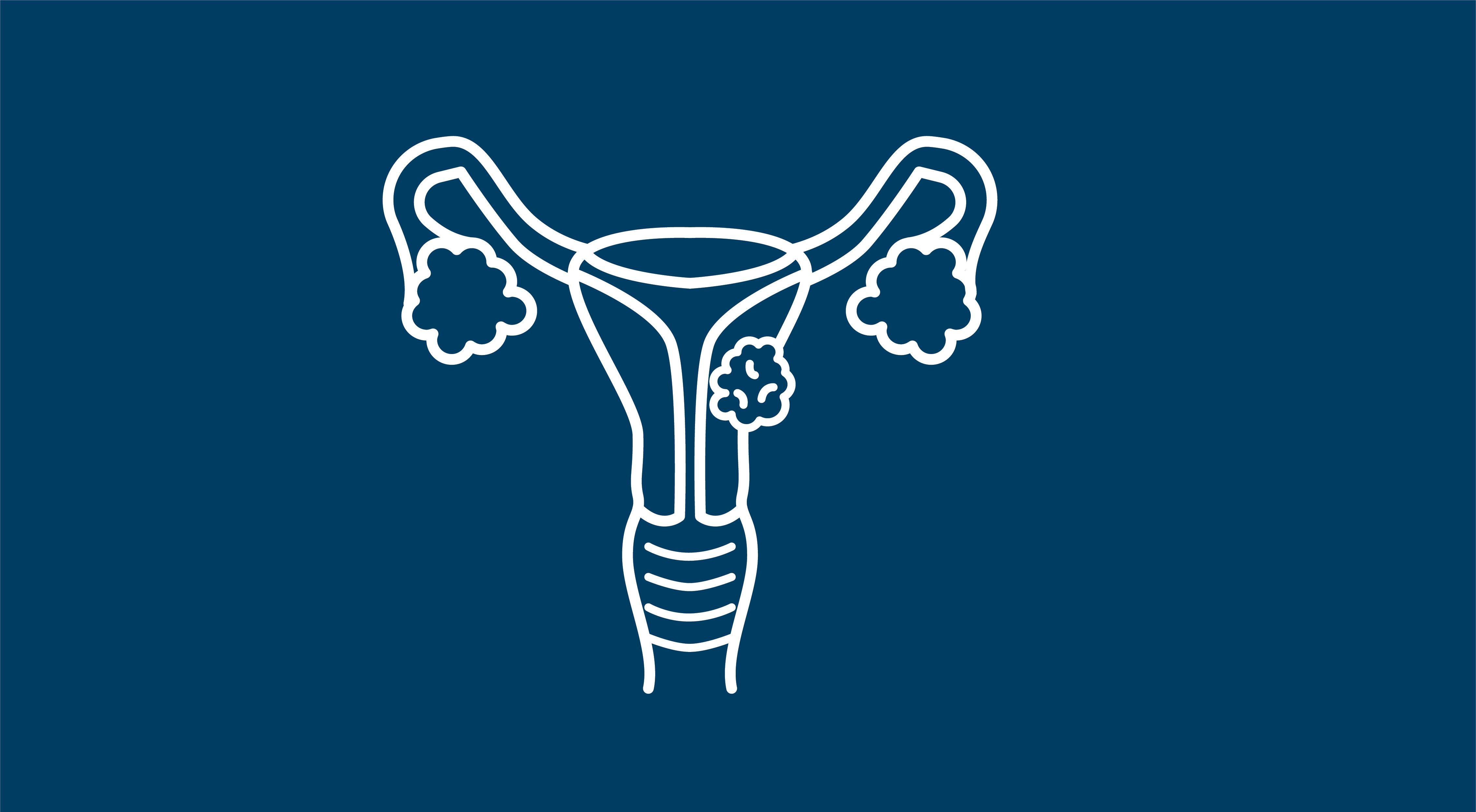Cadonilimab/Chemotherapy Meets Primary End Point in Phase 3 AK104-303 Trial
Frontline cadonilimab (AK104) and platinum-based chemotherapy improved progression-free survival in patients with recurrent or metastatic cervical cancer.
Cadonilimab/Chemotherapy Meets Primary End Point in Phase 3 AK104-303 Trial

Findings from the phase 3 AK104-303 trial (NCT04982237) suggest that patients with recurrent or metastatic cervical cancer may derive a progression-free survival (PFS) benefit with frontline cadonilimab (AK104) plus platinum-based chemotherapy—with or without bevacizumab (Avastin).
Data from the prespecified interim analysis conducted by an independent data monitoring committee showed that the cadonilimab regimen improved PFS by blinded independent central review and RECIST v1.1 criteria compared with placebo plus chemotherapy with or without bevacizumab in all-comer patients, with a P value less than .0001. Notably, this benefit was observed regardless of PD-L1 status.
Although the data were still immature, a trend in improvement in the other primary end point of overall survival (OS) was also observed for the cadonilimab regimen vs the placebo combination. Investigators will continue to assess OS, as planned.
No new safety signals were observed with cadonilimab.
“We are delighted to once again witness the remarkable improvement in PFS achieved with cadonilimab in first-line treatment of all-comer patients with advanced cervical cancer,” Yu Xia, PhD, founder, chairman, president, and chief executive officer of Akeso, Inc, stated in a press release. “This outcome not only reaffirms the advantages of cadonilimab observed in the phase 2 trials of cervical cancer and other trials, particularly in gastric cancer, but also further validates its exceptional clinical value in cancer treatment.”
Cadonilimab is a symmetric tetravalent bispecific antibody with a crystallizable fragment-null design that targets both PD-1 and CTLA-4.
The agent has been shown to have higher binding avidity in a high-density PD-1 and CTLA-4 setting vs a low-density PD-1 setting; a monospecific anti–PD-1 agent has not showcased this differential activity, according to Akeso, Inc. Moreover, cadonilimab is hypothesized to have reduced toxicity because it has minimal antibody-dependent cellular cytotoxicity, antibody-dependent cellular phagocytosis, and interleukin (IL)-6/IL-8 release.
The double-blind, placebo-controlled phase 3 trial enrolled patients with histologically or cytologically confirmed cervical cancer that was not amenable to surgery to concurrent chemoradiation.2 Patients could have squamous cell carcinoma, adenocarcinoma, or adenosquamous cell carcinoma. They could not have previously received systemic treatment for persistent, recurrent, or metastatic disease.
Patients needed to be between the ages of 18 and 75 years, have an ECOG performance status of 0 or 1, at least 1 measurable lesion by RECIST v1.1 criteria, and a life expectancy of at least 3 months. They also needed to be able to provide archival tumor tissue samples within 2 years before undergoing randomization on the study.
If patients had histopathological types of cervical cancer, clinically significant hydronephrosis that cannot be relieved by nephrostomy or ureteral stenting, central nervous system metastases or carcinomatous meningitis, or uncontrollable pleural effusion, pericardial effusion, or ascites that needed to be repeatedly drained, they were excluded. Other exclusion criteria included other active malignancies within 3 years before randomization, previous exposure to chemotherapy agents, or prior antiangiogenic therapy, immune checkpoint inhibitors, or other agents directed against immune costimulatory factors.
Participants were randomly assigned to cadonilimab or placebo plus cisplatin or carboplatin and paclitaxel with or without bevacizumab.
In addition to the co-primary end points of PFS by blinded independent central review (BICR) and RECIST v1.1 criteria and OS, secondary end points include objective response rate, duration of response, and time to response by BICR and RECIST v1.1 criteria. Investigators are also evaluating toxicity, pharmacokinetics, and antidrug antibodies.
“We extend our heartfelt appreciation to all the researchers, participants, and patients who contributed to this trial. It is thanks to your efforts and dedication that a broader population of [patients with] cervical cancer in China will have the opportunity to undergo a novel bispecific immuno-oncology therapy, thereby enhancing treatment effectiveness and improving survival rates,” Xia added in the release.1
In June 2022, the China National Medical Products Administration granted marketing approval to cadonilimab for use as a second- and third-line treatment of patients with advanced cervical cancer.3 The agent was included in the 2022 Chinese Society of Clinical Oncology Guidelines on Diagnosis and Treatment of Cervical Cancer as the top recommended second-line immunotherapy for recurrent or metastatic cervical cancer, according to Akeso, Inc.
Previously, when cadonilimab was paired with oxaliplatin and capecitabine (Xeloda) in the frontline setting, it resulted in a significant OS improvement compared with placebo plus oxaliplatin/capecitabine in patients with unresectable locally advanced or metastatic gastric or gastroesophageal junction adenocarcinoma, meeting the primary end point of the phase 3 AK104-302 trial (NCT050078783).4 The agent is also being compared with placebo as adjuvant treatment in patients with hepatocellular carcinoma with high risk of recurrence following curative resection as part of an ongoing phase 3 trial (NCT05489289).5
References
- Cadonilimab (PD-1/CTLA-4 bispecific antibody) met primary endpoint of progression-free survival in phase III trial for first-line treatment of recurrent/metastatic cervical cancer in all-comer patients. News release. Akeso, Inc. November 27, 2023. Accessed November 27, 2023. https://www.prnewswire.com/news-releases/cadonilimab-pd-1ctla-4-bispecific-antibody-met-primary-endpoint-of-progression-free-survival-in-phase-iii-trial-for-first-line-treatment-of-recurrentmetastatic-cervical-cancer-in-all-comer-patients-301996677.html
- A study of AK104 plus platinum-containing chemotherapy±bevacizumab as first-line treatment for persistent, recurrent, or metastatic cervical cancer. ClinicalTrials.gov. Updated April 27, 2023. Accessed November 27, 2023. https://clinicaltrials.gov/study/NCT04982237
- Akeso’s cadonilimab (PD-1/CTLA-4 bi-specific) included in the 2022 CSCO guidelines as the top recommendation for cervical cancer immunotherapy. News release. Akeso, Inc. October 16, 2022. Accessed November 27, 2023. https://www.prnewswire.com/news-releases/akesos-cadonilimab-pd-1ctla-4-bi-specific-included-in-the-2022-csco-guidelines-as-the-top-recommendation-for-cervical-cancer-immunotherapy-301650315.html
- Akeso's cadonilimab (PD-1/CTLA-4) phase III trial meets primary endpoint at interim analysis demonstrating strong overall survival benefit as first-line treatment in all-comer patients with gastric cancer or gastroesophageal junction adenocarcinoma (GC/GEJC). News release. Akeso. November 7, 2023. Accessed November 27, 2023. https://www.prnewswire.com/news-releases/akesos-cadonilimab-pd-1ctla-4-phase-iii-trial-meets-primary-endpoint-at-interim-analysis-demonstrating-strong-overall-survival-benefit
- A phase III study of AK104 as adjuvant therapy in HCC with high risk of recurrence after curative resection. ClinicalTrials.gov. Updated August 5, 2022. Accessed November 27, 2023. https://clinicaltrials.gov/study/NCT05489289



